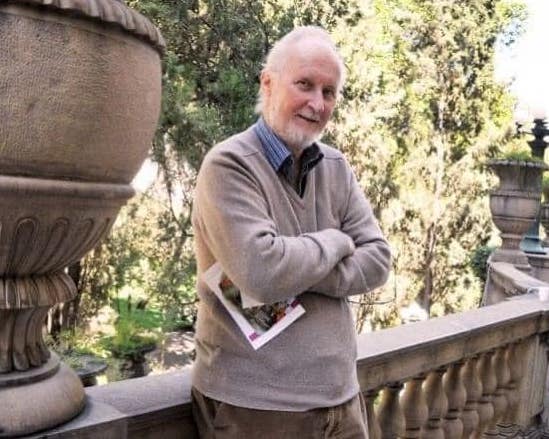Professor Tristan Platt (1944-2024)
The Department of Social Anthropology at the University of St Andrews grieves the passing of Emeritus Professor Tristan Platt (1944-2024). Tristan was a world-leading Andeanist whose historical and anthropological research in Bolivia is internationally recognised as pathbreaking in bringing together archival, ethnographic and linguistic approaches.
Having read Music, Philosophy and Classics at Oxford, Social Anthropology (with Linguistics) at the LSE, and Quechua at Cornell University, Tristan joined the Department of Social Anthropology at St Andrews in 1988. Shortly after his appointment to the Department, Tristan become the Director of the Institute of Amerindian Studies (IAS), later known as CAS (Centre for Amerindian Studies and latterly Centre for Amerindian, Latin American and Caribbean Studies). For over two decades, he contributed pivotally to the development of IAS/CAS which, under Tristan’s leadership and that of his fellow senior colleaguesbecame one of the most prominent Americanist centres of education and research in the UK, and one particularly dedicated to the languages, cultures, history and people of the indigenous Americas. During his tenure at St Andrews, Tristan supervised dozens of doctoral students while conducting research with funding from the British Academy, the Spanish Ministry of Education, the Guggenheim Foundation, and other organisations.
Tristan carried out his first fieldwork in 1970-71 with the Macha, a Quechua-speaking people in the Bolivian Andes, initiating the anthropological study of groups forming the ancient Aymara-speaking confederation of the Qaraqara and the Charka. His studies of time, change and memory, mining and metallurgy, Andean Christianity and conversion, birth and death, and of the political tensions between tributary and citizen relations during the long nineteenth century period of nation-State building have been hailed as pathbreaking in Andean studies and inspired considerable debate across the disciplines of anthropology and history. Tristan’s publications include Estado Boliviano y Ayllu Andino (1982), recently republished by the Biblioteca del Bicentenario de Bolivia as one of the 200 fundamental books on the country, the 1000-pages-long milestone contribution to Andean ethnohistory Qaraqara-Charka: Mallku, and Inka y Rey en la Provincia de Charcas. Historia antropológica de una confederación aymara (siglos XV-XVII), with Thérèse Bouysse-Casagne and Olivia Harris (2006). His most recent book Defendiendo el techo fiscal: curacas, ayllus y sindicatos en el Gran Ayllu Macha, Norte de Potosí, Bolivia, 1930-1994 (2018) furnishes an in-depth study of literacy, community and scribes in the twentieth century Andes before and after the 1952 Bolivian Revolution.
Prior to and during his time at the University of St Andrews, Tristan held numerous affiliations and fellowships in the UK, mainland Europe, South America, and beyond. He was Research Fellow at the Institute of Peruvian Studies and the Bolivian National Archive (1980-84), and at Goldsmiths College London (1985-87), and was awarded a Guggenheim Fellowship in 1996. In 2010-11, he was Visiting Professorial Fellow at the University of London’s School of Advanced Studies (Institute for the Study of the Americas). He held a role as Visiting Professor at the Universidad Pablo de Olavides, Spain (1997-2022) and was a long-standing member of the Bolivian Society as well as the Bolivian Academy of History (2003-2022). Tristan taught in all the Andean countries as well as in Mexico and several European countries and the USA.
Tristan will be greatly missed as a colleague and teacher, with his legacy living on at the Centre for Amerindian, Latin American and Caribbean Studies.
The Department extends its sympathies and condolences to Tristan’s family, colleagues and friends.
Adding Opinion’s touching obituary below:https://www.opinion.com.bo/articulo/cultura/muere-tristan-platt-deja-legado-etnohistoria-andina-bolivia/20240322000045940525.html

